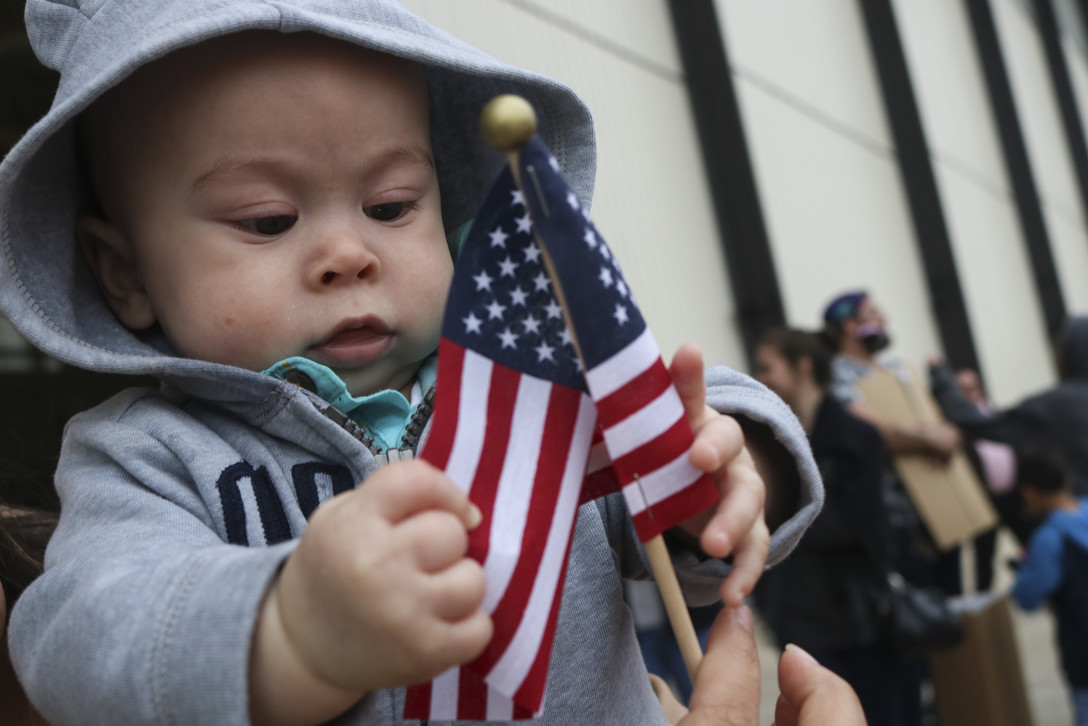Anyone who has been to public debates on abortion knows that each side talks past the other. True to their self-definitions, the “pro-life” side argues primarily that the fetus is human and alive, while the “pro-choice” side speaks mainly of individual freedom. Rarely do they respond to each other’s points.
The intriguing possibility exists, therefore, that audiences may be convinced by both sides. That is, listeners may conclude both that fetuses are living human beings and that abortion should be permitted.
Indeed, the pro-choice side encourages us to hold both positions at once. We can support the right to choose even if we agree with the pro-lifers that abortion takes a life. We can believe what we want, as long as we do not impose our views on others. Politicians, including President Biden, seem particularly attracted to this I’m-personally-opposed-but stance. Back in 2015 he was very explicit about it.
“I’m prepared to accept that at the moment of conception there’s human life and being, but I am not prepared to say that to other God-fearing [and] non-God-fearing people that have a different view. Abortion is always wrong. . . . But I’m not prepared to impose doctrine that I’m prepared to accept on the rest of [the country].” (1)
There is much evidence that a large number of people find themselves in this position. This year is the 50th anniversary of Judith Jarvis Thompson’s well-received piece, “A Defense of Abortion”, in which she explicitly argued that even if the unborn child is a person like the rest of us, its life may rightly be taken in abortion. Abortionists themselves may take such a stance: I had a woman wake up in the recovery room and say, “I just killed my baby.” And I said to her, “You did, and that’s okay.” (2)
An unusually explicit New York Times/CBS News Poll published back in 1998 squares with the findings of earlier and later surveys in finding many people affirming both sides at once. That NYT/CBS poll found that approximately half of all Americans agreed that abortion is “the same thing as murdering a child,” as the Times questionnaire so graphically put it.
SUPPORT LIFENEWS! If you like this pro-life article, please help LifeNews.com with a donation!
But these abortion-is-murder respondents were by no means solidly “pro-life.” About one third of them also agreed that “abortion is sometimes the best course in a bad situation.” Let’s call such people “pro-lifers for choice.”
My question is: what will our society be like if this mixed position continues to be influential? How will such a stance affect public policy making in the future?
Please note that I am concerned only with subjective beliefs here, not with whether abortion really takes a life. Even if we assume abortion itself does no harm, we can still ask about the impact of persons who believe simultaneously in the right to abortion and in prenatal human life.
Isn’t our ability to defend life after birth seriously undermined by people who see no important difference between born and unborn children, and yet think those still unborn shouldn’t be protected by law? If it’s OK to kill a healthy child, what can be so wrong with involuntary euthanasia of seriously disabled newborns? And why care much about stopping child neglect, for example, if child murder is thought permissible?
Abortionist and medical school professor Lisa Harris wrote thoughtfully, “In general feminism is a peaceful movement. It does not condone violent problem-solving, and opposes war and capital punishment. But abortion is a version of violence. What do we do with that contradiction?” (3)
On a still more abstract level, the belief that violence against children may be none of the government’s business strikes at the heart of our notions of community responsibility. If we do not share a common concern for the next generation, what do we share?
Worse still: for those who consider abortion to be murder, it is not just any kind of murder. It is, as the New York Times poll put it, the same thing as “murdering a child.” And where there is a child, there is a mother.
Abortion, in the view of more or less half the American people, is the killing of a child by its own mother. Can we live with the belief that mothers have a fundamental right to take the lives of their children? I doubt it.
The mother-child relationship has been too long held up in this civilization (though no doubt sometimes with wrongful sexist intent) as the archetype of self-sacrificing nurture, as the centerpiece of all idealism. If we think it’s right to permit mothers to dismember their children, what violence may we still forbid?
The conclusion I draw is that an acceptance of the right to abortion by those who think it murder may have grave public consequences, regardless of whether abortion in fact amounts to killing. If many of us think (even erroneously) that abortion takes a life, then upholding a right to choose it cannot but dull our shared sense of responsibility for those elsewhere threatened by violence.
Notes
(1) Joel Gehrke. “Joe Biden: “Abortion Is Always Wrong” National Review, 22 September 2015.
(2) Lisa A. Martin, PhD, Jane A. Hassinger, MSW, Michelle Debbink, MD, PhD, Lisa H. Harris, MD, PhD. “Dangertalk: Voices of abortion providers” Social Science & Medicine 184 (2017) 75-83.
(3) Lisa H Harris. “Second Trimester Abortion Provision: Breaking the Silence and Changing the Discourse” Reproductive Health Matters, 2 Sep 2008.
LifeNews Note: Richard Stith is a professor emeritus of law at Valparaiso University. This article originally appeared at MercatorNet.








